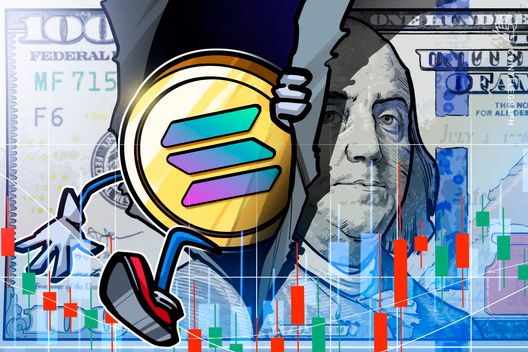In a striking warning to the financial community, JPMorgan Chase CEO Jamie Dimon is anticipating significant upheaval in the nearly $30 trillion U.S. Treasury market. Speaking during a recent earnings call, Dimon expressed concerns that heightened regulations could trigger instability, provoking a response from the Federal Reserve similar to their early pandemic intervention in 2020. “There will be a kerfuffle in the Treasury markets because of all the rules and regulations,” Dimon stated, cautioning that the Fed usually responds only when market participants begin to panic.
Dimon’s comments come amid a backdrop of rising bond yields and increasing market volatility. As investors retreat from popular trading strategies in the midst of trade tensions exacerbated by the ongoing U.S.-China trade war, the stress in the Treasury market becomes palpable. He highlighted that current banking regulations hinder institutions from stepping in as buyers to stabilize the market when liquidity dwindles.
“If they don’t [change the rules], the Fed will have to intermediate, which I think is just a bad policy idea,” Dimon warned, advocating for reform that could empower banks to act more freely.
One reform idea under consideration is exempting U.S. Treasuries from leverage ratio calculations, allowing banks to invest more in government debt without impacting their capital positions. This change could play a crucial role in maintaining market functionality, as a repeat of 2020’s market turmoil could have dire consequences for the broader economy.
The Treasury market is not only vital for the U.S. economy but also influences global finance, affecting everything from mortgage rates to corporate bond yields. A disruption here may lead some investors to seek refuge in alternative assets like bitcoin (BTC), which many view as a safeguard against economic instability. Observing past trends, bitcoin’s price surged in 2020 following the Federal Reserve’s aggressive stimulus initiatives, highlighting the potential for cryptocurrencies to reshape investment strategies during periods of financial uncertainty.

Impact of Potential Disruption in the U.S. Treasury Market
JPMorgan Chase CEO Jamie Dimon warns of significant potential disruptions in the U.S. Treasury market, which could have widespread implications for investors and the broader economy. Here are the key points to consider:
- Potential Disruption in the $30 Trillion Treasury Market:
Dimon anticipates a kerfuffle in the Treasury market due to existing rules and regulations.
- Role of the Federal Reserve:
The Fed may be compelled to intervene, similar to their actions during early COVID-19, but only in a state of panic.
- Rising Bond Yields and Market Volatility:
Increased bond yields suggest a withdrawal from popular trading strategies, adding stress to an already volatile market influenced by U.S.-China trade tensions.
- Regulatory Challenges for Banks:
Current regulations inhibit banks from stepping in as buyers when liquidity decreases, leading to a call for reforms.
- Proposed Reforms:
- Exempting Treasuries from leverage ratio calculations to enable banks to purchase more government debt.
- Concerns about the Fed’s role in intervening, which Dimon deems a poor policy idea.
- Economic Ramifications:
A disruption could affect everything from mortgage rates to corporate bond yields, potentially locking up the financial system.
- Shift Towards Alternative Investments:
In the event of Fed intervention, investors may turn to bitcoin as a hedge against economic instability, similar to the trends observed during 2020.
Dimon’s comments suggest that market participants should remain vigilant as these changes could impact investment strategies.
The disruptions hinted at by Dimon are critical for investors, as they may need to reassess their investment approaches and prepare for volatility in the treasury market and broader economic implications. Understanding these factors may be crucial for personal finance and investment decisions in the near future.
JPMorgan’s Dimon Sounds Alarm on Treasury Market Disruption
In a recent earnings call, Jamie Dimon, CEO of JPMorgan Chase, raised concerns about a potential upheaval in the nearly $30 trillion U.S. Treasury market, which could compel the Federal Reserve to intervene similarly as they did at the onset of the COVID-19 pandemic. His insights echo a prevailing sentiment among financial experts about the fragility of current market dynamics amidst escalating interest rates and geopolitical tensions.
Competitive Advantages: Dimon’s authoritative position at one of the largest banks in the U.S. lends significant weight to his predictions. His call for regulatory reforms aims not just to empower banks but also to stabilize a critical sector of the economy. Such reforms could facilitate greater liquidity in the Treasury market, benefiting institutional investors who thrive on stability and predictability. Furthermore, should the Fed act to mitigate these disruptions, there may be a flight to safety towards Treasuries, enhancing their role as secure assets even more.
Disadvantages: On the flip side, if Dimon’s concerns materialize, it could lead to heightened market volatility and investor panic, reminiscent of 2020. Imminent regulation changes might encounter pushback from various financial stakeholders wary of impropriety, which could add layers of uncertainty to market operations. The potential shift to bitcoin or other cryptocurrencies as alternatives could also create additional complications, diverting investments away from traditional finance into these less regulated markets, which carry their own risks.
This discourse could uniquely benefit institutional investors and hedge funds seeking safe-haven assets, creating opportunities for them to capitalize on Treasuries and perhaps bitcoin if confidence falters in government bonds. Conversely, retail investors and smaller banks may face challenges navigating this turbulent landscape, particularly if liquidity dries up or regulatory changes lead to increased complexity in the investment landscape. Understanding these dynamics will be crucial as they navigate the implications of a potential Treasury market disruption.















